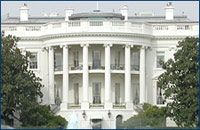Frank Pasquale Blogging About “A Deep Rot at the Core of American Finance and Politics”
Over at Concurring Opinions, Frank Pasquale has written a post entitled “The Economics Was Fake But the Bonuses Were Real.” If you find yourself wondering lately about whether and how we will “rebuild the trust necessary for a thriving economy” (Pasquale’s words), it’s worth reading. He discusses, for instance, the recent and somewhat surprising statements by a “shaken Richard Posner,” who seems to be losing his faith in law and economics. And he describes the profound opportunism at the base of our economic crisis:
The current crisis exposes the fragility of markets generally. They are built on mutual reciprocity, and as more opportunism from trusted intermediaries is exposed, the weaker our faith in other market actors becomes. Both Francis Fukuyama’s work on trust and Robert Putnam’s on the “social capital” it reflects bode ill for our economy. Putnam describes a southern Italy mired in corruption and fraud, and a northern Italy whose economic success is built on its long history of civic associations and mutual endeavor. Can anyone doubt that our economy is exposed (with each passing day) as more Sicilian in its “winners'” casual acceptance of fraud, more Russian in its oligarchic tendencies, more Brazilian in its inequality? After the Madoff scandal, what are investors to do–personally spot-check their broker’s office and assure that trades are actually being made?
There is a bunch of other interesting stuff in this post, but I think I’ll just end with my favorite part. In discussing the “worship of wealth,” Pasquale quotes from the blog of former fund manager John Bogle:
At a party given by a billionaire on Shelter Island, the late Kurt Vonnegut informs his pal, the author Joseph Heller, that their host, a hedge fund manager, had made more money in a single day than Heller had earned from his wildly popular novel Catch 22 over its whole history. Heller responds, “Yes, but I have something he will never have . . . Enough.”


